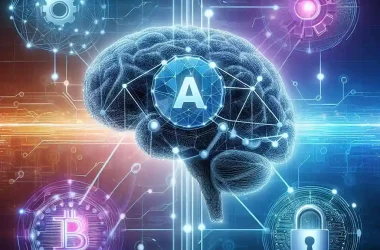Where Do We Go From Here?
Current State of Trust and Uncertainty
“In today’s interconnected world, rebuilding trust is crucial. This article explores how blockchain technology plays a pivotal role in rebuilding trust among communities, governments, and institutions.”
This revision ensures that the key phrase “blockchain technology rebuilding trust” is clearly stated in the introduction, aligning with SEO best practices for clarity and relevance from the outset.
Importance of Trust and Blockchain’s Potential
Leaders must scrutinize the problems they face and explore potential solutions. While blockchain technology may not always be the optimal approach, its ability to enhance accountability, security, and efficiency in recordkeeping systems deserves serious consideration. This is particularly relevant for government agencies, nonprofits, and businesses aiming to rebuild trust with their communities.
The Evolving Landscape of Blockchain
Blockchain is still in its infancy, and as it matures, technologists, policymakers, and academics will uncover new dynamics. These developments will impact both potential and established blockchain deployments. Therefore, stakeholders must stay informed about ongoing advancements in the field.
Additional Areas of Research Digitizing Off-Chain Assets and Analog Data
Blockchain technology requires integration with digital data sources, posing challenges for groups reliant on analog data. Limited internet connectivity and accurate digitized records, often confined to developed countries, may restrict blockchain’s potential impact. Addressing these hurdles is crucial for blockchain to achieve its potential as an open, democratic technology.
Refining Effective Identity Solutions
An integrated identity management platform is essential for authenticating users and maintaining accountability in blockchain solutions. The absence of an effective identity solution creates anonymity gaps that can compromise blockchain integrity. Developing secure proof-of-identity on blockchain could transform the lives of 1.1 billion people worldwide who lack recorded identity, enabling better access to services like aid distribution, land titling, and financial services.
Simplifying Blockchain Governance
Blockchain’s inherent rigidity poses challenges for protocol changes. Creating an effective and secure identity solution may simplify governance processes while maintaining tamper-resistance and security. Anticipating and addressing governance model bugs and errors is vital for the sustainability of blockchain systems.
Instituting Blockchain-Specific Laws and Regulations
Regulators must balance the entrepreneurial opportunities of blockchain with the need to protect human participants. Current regulations primarily focus on cryptocurrencies rather than their underlying infrastructure. Establishing a regulatory framework for blockchain technology is crucial for managing on-chain data’s impact on the off-chain world and improving interactions with existing legal systems.
Developing Blockchain Ethics
Blockchain technology involves trade-offs, such as efficiency versus security and accountability versus privacy. Addressing these ethical questions requires considering cultural norms and future contexts. Developing a code of moral standards for technologists and policymakers will help uphold social values within interactive blockchain ecosystems.
Combatting Disinformation Through Blockchain
Blockchain-verified timestamps and geolocation can combat disinformation in news and online content. As these capabilities develop, they will help restore integrity, clarity, and trust in public information.
Exploring the Intersection of Frontier Technologies
Innovators must consider potential synergies between blockchain and other emerging technologies like Artificial Intelligence, Internet of Things, and quantum computing. Social sector innovators should explore these intersections to address social impact and governance challenges effectively.
Incorporating Differential Privacy into Blockchain Solutions
Privacy concerns are paramount as more personal data is captured by companies and governments. While anonymizing datasets helps protect individuals, blockchain could exacerbate privacy risks by enabling increased data synthesis. Implementing methods to prevent isolating specific individuals from datasets while maintaining openness is essential.
Cultivating Future Talent for Blockchain Solutions
Blockchain technology is currently understood by a limited number of programmers and tech firms. There is a consensus that more programmers proficient in blockchain solutions are needed. As the field grows, new programming talent should reflect the diversity of a global user base. Initiatives like cross-sector projects, startup-in-residence programs, academia, hackathons, and traditional accelerators will attract new leaders to the discipline.














